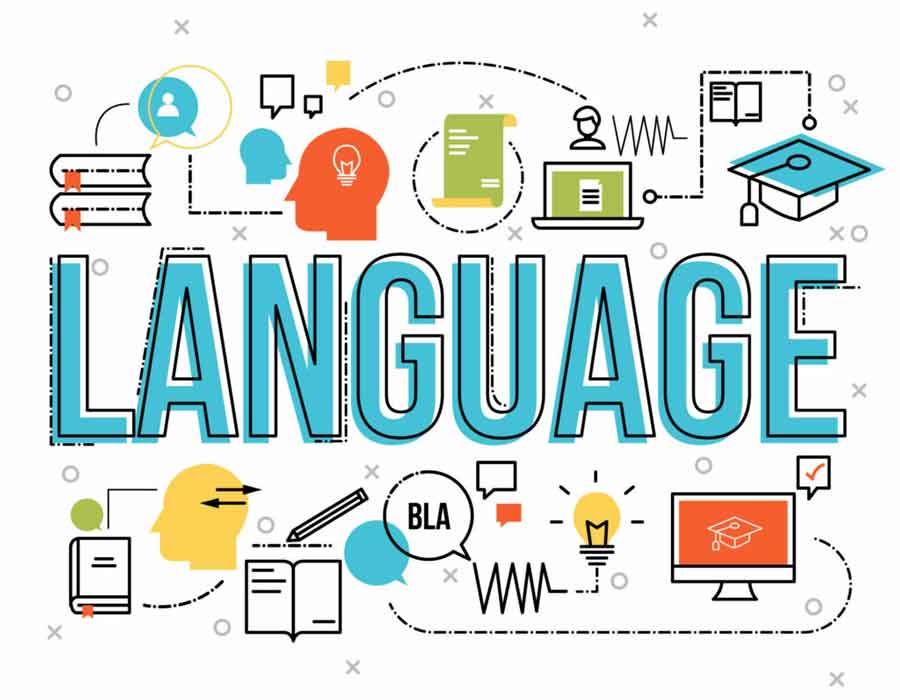Crazy About Learning A New Language? When embarking on the journey of learning a new language, it’s helpful to have an introduction that sets the stage for your language learning experience. Here’s a brief introduction to learning a new language :
Also Read:
- Scope of Foreign Languages in India
- English is not a Universal Language?
- International Mother’s Day
- When Mother in Law Behaves as a Friend, the House Turns Heaven
- Benefits of Learning Foreign Language
Table of Contents
Introduction:

Positive Mindset:
To begin your language learning journey, it’s important to have a positive mindset and a strong motivation. Understand that language learning takes time, it requires a lot of effort, and patience. Embrace the process and view each step as an opportunity for growth.
Set Your Goal:
Start by setting clear goals for yourself. Identify why you want to learn the language and what you hope to achieve. Whether it’s conversational fluency, reading proficiency, or specific career-related objectives, having well-defined goals will keep you focused and motivated.
Choose the Language:
Next, choose the language you want to learn. Consider your interests, future plans, and the practicality of the language in your personal or professional life. Explore resources and courses available for that language, including online platforms, language learning apps, textbooks, and language exchange programs.
Develop Your Study Plan:
Develop a study plan that suits your schedule and learning style. Consistency is key, so establish a regular routine for practicing the language. Set aside dedicated time for listening, speaking, reading, and writing activities. Make use of various resources such as textbooks, online tutorials, podcasts, and language learning apps to reinforce your learning.
Devote Yourself to Language:
Immerse yourself in the language as much as possible. Surround yourself with authentic materials like books, movies, music, and podcasts in the target language. Seek out opportunities to practise with native speakers, either through language exchange programs, language meetups, or online language communities.
A Gradual Process:
Remember to celebrate your progress along the way. Language learning is a gradual process, and every milestone achieved is worth acknowledging. Don’t be afraid to make mistakes and embrace them as learning opportunities. Language learning is an ongoing journey, and even reaching a basic level of proficiency can bring tremendous joy and satisfaction.
Experience of Discovering a New Language & Culture:
Lastly, enjoy the experience of discovering a new language and culture. Embrace the beauty of language diversity and the connections you’ll forge with people from different backgrounds. Learning a new language opens doors to new experiences, friendships, and a deeper understanding of the world.
So, get ready to embark on an adventure of language learning. Be patient, stay motivated, and embrace the journey. The language you choose to learn will not only broaden your horizons but also provide you with a unique perspective and a lifelong skill.
Strategies to Learn New Language:
Language Basics:
Begin by learning the fundamental aspects of the language, such as pronunciation, greetings, basic vocabulary, and essential grammar rules. This foundation will provide you with a solid starting point for further language learning.
Vocabulary Building:
Expand your vocabulary by learning new words and phrases related to various topics such as family, food, travel, hobbies, and daily life. Focus on common words and expressions that are relevant to your interests or the situations you may encounter while using the language.
Grammar and Syntax:
Study the grammar rules and sentence structures of the language. Understanding the grammatical components will help you construct meaningful sentences and communicate effectively. Learn about verb conjugation, noun and adjective agreements, word order, and sentence formation.
Listening and Speaking:
Improve your listening and speaking skills by actively engaging with the language. Practice listening to native speakers through audio materials, podcasts, or videos. Work on pronunciation, intonation, and speaking fluency by engaging in conversations, language exchanges, or even hiring a tutor for conversational practice.
Reading and Writing:
Enhance your reading comprehension by gradually working with texts of increasing complexity. Start with simple sentences, short stories, or news articles and gradually move on to more advanced texts. Additionally, practice your writing skills by composing sentences, paragraphs, and eventually longer pieces of writing in the target language.
Cultural Context:
Explore the culture associated with the language you’re learning. Learn about customs, traditions, and societal norms to gain a deeper understanding of how language is used within its cultural context. This knowledge will enrich your language learning experience and help you navigate social interactions more effectively.
Idioms and Expressions:
Familiarize yourself with idiomatic expressions and commonly used phrases in the target language. Idioms often carry cultural significance and understanding them can greatly enhance your ability to communicate naturally and connect with native speakers on a deeper level.
Experiment With Language Learning Methods:
Discover effective language learning strategies and techniques that work best for you. Experiment with different methods such as flashcards, mnemonic devices, spaced repetition systems, or language learning apps. Adapt your learning approach based on your strengths, weaknesses, and preferred learning style.
Some Benefits of Learning a New Language:
Cultural Appreciation:
Learning a language allows you to better understand and appreciate the culture, history, and traditions associated with that language. It helps you gain insight into the perspectives and experiences of people from different backgrounds.
Improved Cognitive Skills:
Language learning stimulates your brain and enhances cognitive abilities such as problem-solving, memory, and multitasking. It can also improve your attention span and overall mental agility.
Enhanced Career Prospects:
Knowing a second or third language can significantly boost your employability, particularly in today’s globalized world. It opens up job opportunities in various industries and can give you a competitive edge in the job market.
Expanded Social Connections:
Learning a new language allows you to communicate with a wider range of people. It helps you connect with individuals from different countries and communities, fostering new friendships and cultural exchange.
Travel and Exploration:
Knowing the local language can greatly enhance your travel experiences. It enables you to navigate and engage with locals, understand signs, menus, and directions, and immerse yourself more fully in the local culture.
Broadened Perspectives:
Language shapes the way we perceive and understand the world. Learning a new language exposes you to different ways of thinking, diverse perspectives, and alternative worldviews. It helps you become more open-minded, adaptable, and appreciative of cultural diversity.
Conclusion:
If you’re interested in learning a new language, there are various resources available to help you get started. You can consider language learning apps, online courses, language exchange programs, tutors, or even traditional classroom settings depending on your preferred learning style. The key is to find a method that works best for you and to stay consistent and motivated throughout your language learning journey.













































